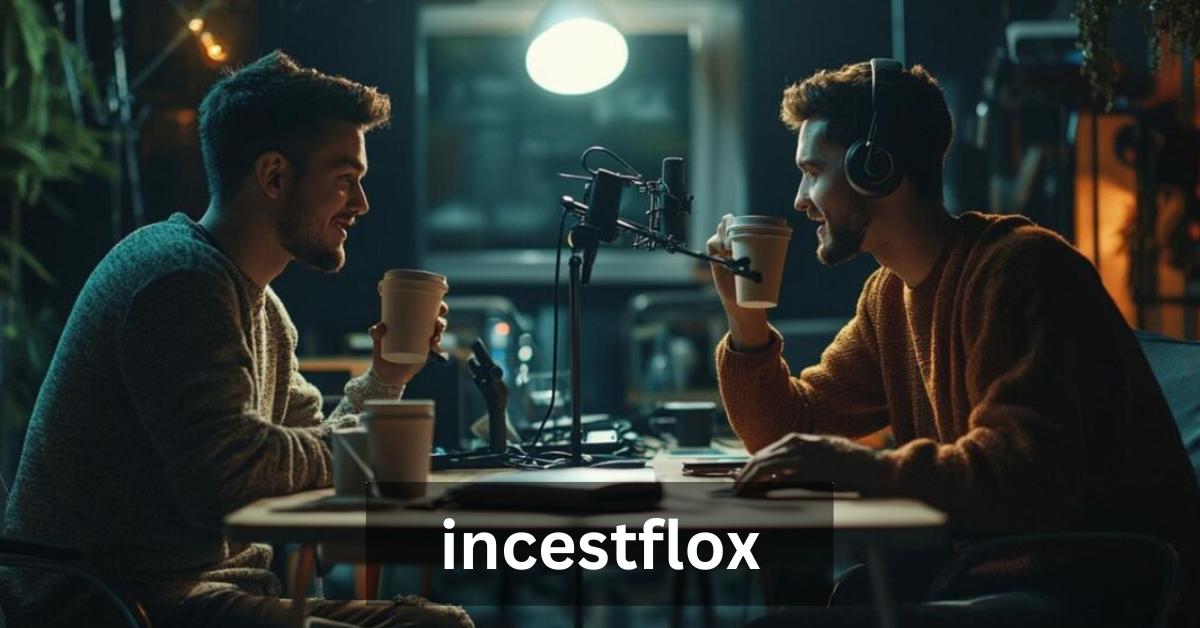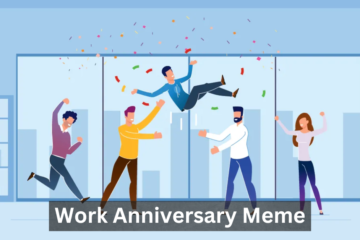Incestflox refers to an online phenomenon where individuals are publicly shamed or accused of incest, often with little evidence. It involves both emotional distress and a significant breach of privacy, typically exacerbated through doxxing, public accusations, and online harassment.
One such issue is incestflox, a term that intertwines complex ethical, psychological, and societal themes. At its core, incestflox refers to the phenomenon where an individual’s personal history, particularly an accusation or involvement in incest, becomes publicized through digital platforms, often as a result of harassment, cyberbullying, or doxxing. This article delves into the multifaceted nature of incestflox, examining its psychological toll, legal ramifications, and the role of social media in perpetuating these challenges.
Defining Incestflox: What It Is and Why It Matters
Incestflox is a relatively new term, one that combines the concept of incest—typically regarded as a taboo and legally prohibited act—and doxxing, the malicious act of publicly exposing someone’s private information. The flox part of the term specifically refers to the targeted harassment that is frequently accompanied by the release of sensitive personal details, either true or fabricated. This act goes beyond the realm of traditional defamation or bullying, blending deep personal stigmatization with an assault on one’s online and offline reputation.
Understanding the dynamics of incestflox requires us to grasp the intersection of personal privacy, public shaming, and the legal and cultural implications of online harassment. As the digital landscape continues to evolve, so too does the scale and scope of such harmful behaviors, demanding a reevaluation of how society responds to these emerging challenges.
The Rise of Online Harassment: A Broader Context
Online harassment has become an increasingly widespread issue, affecting millions globally. From trolling to cyberbullying, the digital age has facilitated more ways for people to cause harm without facing direct consequences. Incestflox fits within this broader context, representing a particularly extreme form of online harassment. The anonymity offered by social media platforms like Twitter, Reddit, and Instagram makes it easier for individuals to spread rumors, exploit personal vulnerabilities, and encourage social ostracism without immediate accountability.
Social media has transformed the way we communicate, but it has also blurred the lines between public and private lives. The spread of incestflox is a direct consequence of this shift. In the wake of public allegations—whether true or false—individuals can find themselves subjected to widespread condemnation, even before any legal framework can investigate or verify the claims.
Understanding the Psychological Impact of Incestflox
Emotional and Mental Health Consequences for Victims
The emotional toll of being subjected to incestflox is profound. Victims of such harassment often face psychological distress that can last long after the initial event. The fear of social rejection, the trauma of being exposed, and the inability to control personal narratives can all contribute to severe mental health struggles. For many, this translates into anxiety, depression, and a pervasive sense of vulnerability. Therapy and counseling resources are essential for helping those affected rebuild their lives, but recovery can be a lengthy and difficult process.
The Long-Term Effects on Family Dynamics
Beyond the individual, incestflox can wreak havoc on family dynamics. The public nature of such an accusation can lead to strained relationships, mistrust, and even familial disintegration. Families might find themselves torn between defending a loved one or confronting the uncomfortable reality of the situation. Regardless of the facts, the social stigma and public shaming caused by incestflox often result in irreparable damage to relationships that were once considered stable and secure.
Case Studies: Real-World Psychological Impact
There are numerous examples where individuals have suffered from the psychological effects of incestflox, especially when false allegations are made public. Take, for instance, the case of a public figure whose private life was maliciously shared on social media. The individual experienced not only personal distress but also faced professional setbacks, as the damage to their reputation was hard to undo. This is a direct example of how incestflox can permeate all aspects of a person’s life, affecting both their emotional well-being and their livelihood.
The Legal Landscape of Incestflox: Global Perspectives
Laws Governing Online Doxxing and Privacy Invasion
Incestflox often intersects with the illegal practice of doxxing—publishing private or identifying information about someone without their consent. Many countries have taken steps to address the issue of online harassment through cybersecurity laws, which govern the protection of personal information. For instance, the European Union’s General Data Protection Regulation (GDPR) offers protection for individuals’ privacy and aims to limit the exposure of personal data online. Similarly, in the United States, various state laws criminalize doxxing and online harassment, though enforcement remains inconsistent.
However, the challenge with incestflox is that it often falls into a grey area of legal interpretation, particularly when the exposed details are related to personal matters or accusations that may not yet be proven true.
How Different Countries Address Incestflox
Legal responses to incestflox differ greatly across the globe. While some countries have robust anti-harassment laws that directly address online public shaming, others lack clear legal frameworks to protect individuals from malicious online behavior. For example, in countries like Japan, where internet trolling and online harassment are growing concerns, there are increased efforts to develop stricter cybersecurity measures. On the other hand, in certain parts of the U.S., the lack of comprehensive federal laws leaves victims vulnerable to online exploitation.
Potential Legal Consequences for Perpetrators
The legal consequences for those who engage in incestflox can be severe. In many jurisdictions, individuals found guilty of doxxing or online harassment can face civil or criminal penalties, including fines and imprisonment. Legal professionals specializing in defamation and cyber harassment play a key role in defending victims and seeking justice in such cases. However, due to the complexities surrounding privacy laws and online accusations, victims often struggle to find adequate legal recourse.
Incestflox and Social Media: A Double-Edged Sword
How Social Platforms Amplify or Mitigate Incestflox
Social media platforms such as Facebook, Instagram, and Twitter are powerful tools for spreading information, but they also serve as breeding grounds for harmful behaviors like incestflox. While these platforms have policies against harassment and bullying, the sheer volume of content being uploaded daily makes it difficult to monitor everything. In some cases, incestflox may be amplified by viral posts or the actions of influential users who may share or endorse these allegations without verifying the information.
Role of Influencers and Online Communities in Shaping Perceptions
Influencers and online communities play a significant role in shaping public perceptions of incestflox. In the age of cancel culture, influencers often use their platforms to highlight or condemn individuals accused of misconduct, sometimes without due process or consideration of the truth. While this may seem like a form of social justice, it can often lead to mob mentality, where individuals are judged and punished based on public opinion rather than facts.
Case Examples: Viral Incidents of Incestflox
Consider the case of a celebrity who found their personal life exposed online after an unfounded rumor began circulating. The story quickly gained traction on social media, and as the accusation spread, so did the damage to their reputation. Despite the lack of evidence, the viral nature of the accusation led to the individual being ostracized from various professional and social circles.
Cultural and Societal Attitudes Toward Incestflox
Cultural Sensitivities and Perceptions of Incestuous Behavior
Cultural norms around incest and family dynamics shape how incestflox is perceived by different communities. In many societies, incest is considered one of the most taboo behaviors, and accusations of incest—true or false—can lead to extreme social rejection. The stigma surrounding incestuous behavior often causes a person to be viewed through a lens of moral corruption, intensifying the effects of incestflox.
How Media and Entertainment Influence Public Opinion
Media and entertainment have a profound influence on societal attitudes toward controversial issues like incest. Movies, documentaries, and news coverage often portray incestuous relationships in a sensationalized manner, contributing to public fear and stigma. These portrayals can influence the public’s response to accusations of incest, further complicating the impact of incestflox.
Intersection of Cancel Culture and Incestflox
Cancel culture, with its focus on holding individuals accountable for their actions, can sometimes bleed into the realm of incestflox. While cancel culture aims to shed light on unethical behaviors, it can also contribute to mob-like justice, where accusations are made without sufficient evidence or opportunity for the accused to defend themselves. This intersection highlights the dangers of judgment without due process in the digital age.
Navigating the Ethical Complexities of Incestflox
The Tension Between Autonomy and Societal Boundaries
One of the core ethical issues with incestflox is the balance between an individual’s right to autonomy and the societal norms that govern acceptable behavior. While individuals should have the freedom to make personal choices, society often holds certain behaviors—like incest—against a higher moral standard. This tension creates ethical dilemmas, particularly when personal privacy is violated in the process of exposing such behaviors.
Ethical Considerations for Digital Platforms
Digital platforms are key players in the dissemination of information. They have an ethical responsibility to protect users from harm while also upholding freedom of speech. However, as incestflox demonstrates, there are times when the rights of individuals must be balanced against the need to curb harmful behaviors. Striking the right balance is crucial for creating ethical online environments.
Responsibilities of Content Creators and Users in Preventing Harm
Both content creators and users of online platforms must take responsibility for the content they share. By adhering to ethical standards and verifying information before spreading it, individuals can help reduce the prevalence of incestflox. Additionally, content creators must be mindful of their influence and avoid amplifying unfounded accusations that could harm others.
The Role of Technology and Digital Tools in Combating Incestflox
Anti-Doxxing Technology: Tools to Protect Online Privacy
Anti-doxxing technology plays a crucial role in protecting individuals from the harmful effects of incestflox. Tools that mask or encrypt personal information can prevent malicious actors from accessing sensitive details. These technologies are essential for maintaining online privacy and reducing the risk of public exposure.
Legal Actions and Cybersecurity Measures Against Incestflox
Legal experts specializing in online harassment can assist victims in filing lawsuits and seeking redress for the harm caused by incestflox. Cybersecurity measures, such as data encryption and secure communication channels, can also help safeguard individuals from privacy breaches. Governments and legal systems must continue to evolve their responses to digital privacy concerns, ensuring that perpetrators of incestflox face appropriate legal consequences.
The Future of Digital Ethics and Responsibility
As digital technology continues to shape society, the need for ethical standards in online spaces has never been more critical. The future of digital ethics hinges on creating a balance between protecting personal privacy and ensuring that online platforms are safe, inclusive, and accountable for the content they host.
Support and Recovery for Victims of Incestflox
Psychological Support: Therapy and Counseling Resources
Victims of incestflox often require specialized psychological support to help them cope with the emotional trauma associated with public exposure and social ostracism. Therapists who specialize in online harassment and trauma recovery can assist victims in reclaiming their mental health and rebuilding their lives.
Legal Support for Victims: Protecting Personal Information
Victims of incestflox often face not only the emotional toll of public shaming but also legal complications. Legal support is critical in protecting the privacy of those affected and ensuring their personal information is safeguarded against malicious exposure. Lawyers specializing in privacy law and cyber harassment can help victims take legal action against the perpetrators of doxxing or other forms of harassment linked to incestflox. Legal avenues may include filing defamation lawsuits, requesting the removal of harmful content from social media platforms, and seeking compensation for damages caused by the online shaming.
Additionally, various organizations offer pro bono services to assist victims of cyber harassment. In cases where legal action may not be feasible due to financial constraints, these services can be invaluable in securing the privacy and dignity of those affected. Victims should not hesitate to consult with experienced legal experts to explore their options and ensure they are equipped to defend their rights.
Building Empathy and Community Support Systems
Recovering from the emotional and social toll of incestflox requires a strong support system. Family, friends, and local communities play vital roles in helping victims regain their sense of identity and rebuild their lives. Community support systems—whether in-person or online—are crucial for providing the emotional resilience needed to combat the effects of social ostracism and public shaming.
Empathy from others can be a transformative force for those who have been subjected to online harassment. Online communities, when utilized appropriately, can offer solidarity, share coping strategies, and create safe spaces for victims to share their experiences without fear of further judgment. This approach not only aids in emotional recovery but also fosters an environment of understanding and mutual respect in the digital realm.
Preventing and Reducing Incestflox in Online Communities
Best Practices for Ethical Online Behavior
In order to combat the growing issue of incestflox, individuals and communities must adopt best practices for ethical online behavior. This includes verifying information before sharing it, resisting the temptation to engage in online shaming, and taking steps to protect the privacy of others. Social media platforms and internet forums can foster a more positive and supportive environment by encouraging users to think critically about the content they consume and share.
One of the best practices to mitigate incestflox is promoting digital literacy and understanding the profound consequences of online harassment. Social media companies and online communities should educate their users on responsible internet use, emphasizing respect for personal boundaries and privacy.
How Platforms Can Protect Their Users from Incestflox
Social media platforms have a significant role to play in reducing the prevalence of incestflox. These platforms can implement stronger privacy protections and take more proactive measures against doxxing and harassment. Stricter content moderation policies, along with tools that allow users to report harmful content, are essential in preventing malicious attacks and protecting victims of online shaming.
Moreover, social media platforms should work in collaboration with legal experts, mental health professionals, and cyberbullying organizations to ensure that the responses to online harassment are well-coordinated and effective. Only through a concerted effort can platforms truly protect their users from the severe consequences of incestflox and similar forms of digital abuse.
Community and Educational Efforts to Raise Awareness
Education is key to preventing incestflox and reducing online harassment more broadly. Community leaders, educators, and mental health professionals can work together to raise awareness about the emotional, psychological, and social consequences of online shaming. Educational campaigns can help to inform the public about the long-term impact of actions like doxxing and how such behaviors contribute to the culture of online harassment.
In addition to raising awareness, community outreach programs can help individuals who are at risk of being subjected to incestflox understand how to protect their personal information online. Building a culture of empathy, respect, and digital responsibility can go a long way in mitigating the occurrence of harmful practices.
Conclusion
The phenomenon of incestflox serves as a stark reminder of the darker side of digital culture. It highlights the risks individuals face when their personal lives are subjected to public scrutiny, often without their consent or the opportunity to defend themselves. The consequences of such harassment can be devastating, affecting mental health, relationships, and social standing for years to come.
However, the challenges posed by incestflox are not insurmountable. Through legal reforms, improved social media regulations, and collective efforts to promote digital empathy, we can mitigate the harm caused by such online practices. It is essential that both individuals and platforms take responsibility for creating safer, more compassionate digital spaces.
As we navigate the complexities of the digital age, it is crucial to remember the value of empathy, privacy, and respect for others. Whether it is through legal action, community support, or technological tools, we must work together to ensure that online spaces are safe, inclusive, and free from the destructive effects of incestflox. By fostering a more compassionate digital society, we can protect individuals from the pain of public shaming and build a healthier, more supportive online community for all.
Frequently Asked Questions
How does incestflox affect mental health?
Victims of incestflox often experience severe emotional and psychological consequences, including trauma, stress, anxiety, and depression. The long-term effects can impact family dynamics and lead to social ostracism.
Is incestflox illegal?
While laws on incestflox vary by country, it often overlaps with illegal actions like doxxing, defamation, and harassment. In many jurisdictions, sharing private information or making false accusations can lead to legal consequences for the perpetrators.
How can victims of incestflox protect themselves online?
Victims can take legal action, engage in reputation management strategies, and utilize privacy tools to protect their personal information. Many online platforms also offer reporting features to remove harmful content.
What role do social media platforms play in incestflox?
Social media platforms can amplify the effects of incestflox by allowing false accusations to spread rapidly. However, platforms that enforce stricter content moderation and privacy policies can help reduce the impact of such harassment.
Stay in touch to get more updates & alerts on TGTube! Thank you



